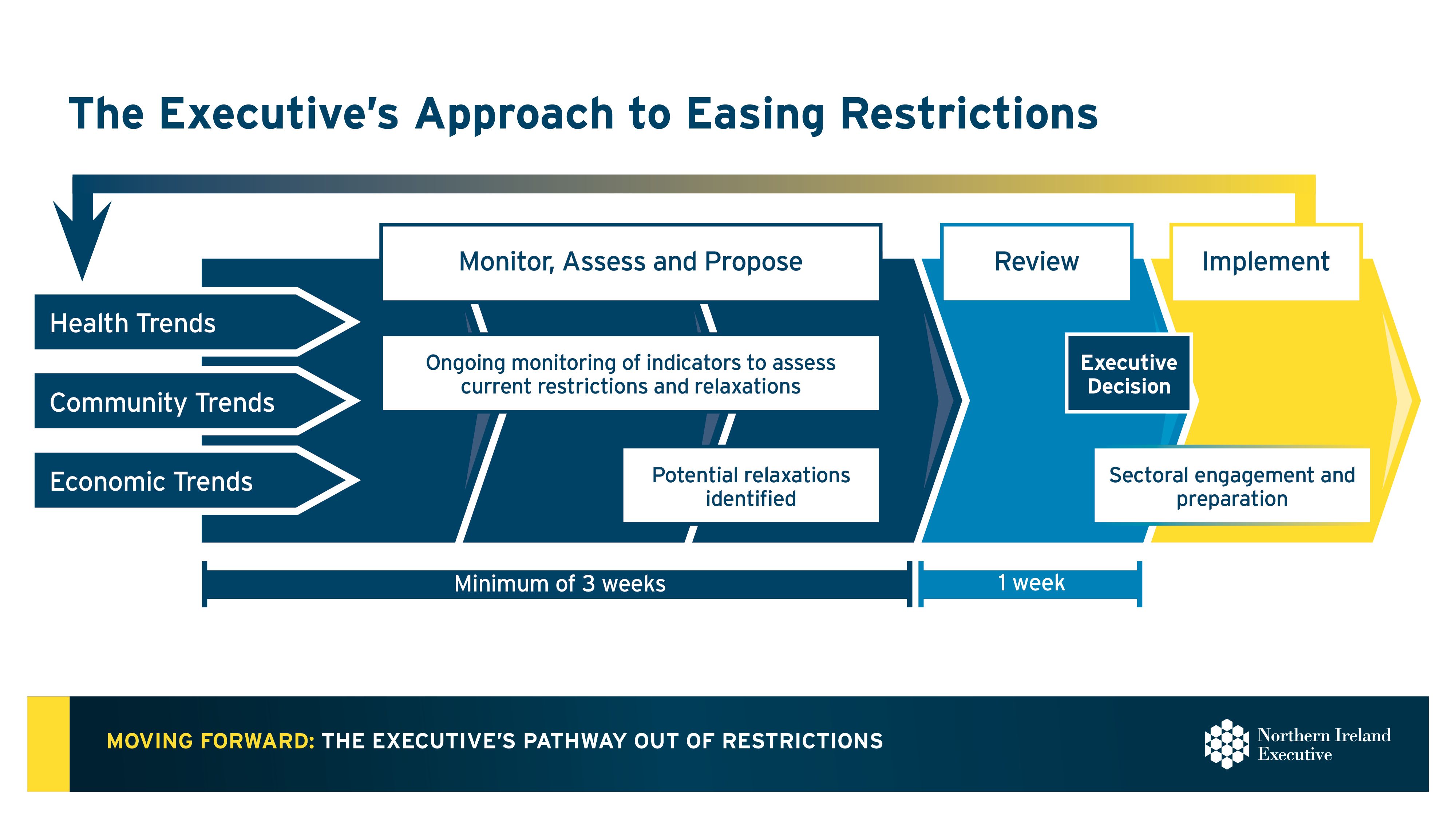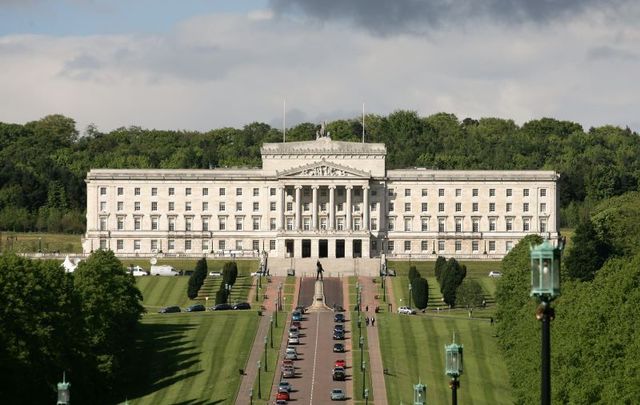The Northern Ireland Executive has outlined its pathway to a gradual easing of the current restrictions across the region.
In a statement issued today, March 2, the Northern Ireland Executive said that the new "plan builds on medical and scientific advances over the last year, which together with the collective action of citizens, has resulted in a reduction in levels of infection across the region.
"These advances include the expansion of the test, track and protect systems to target localised outbreaks and identify and respond rapidly to any new variants of concern; and the success of our vaccination programme, which has delivered a vaccine to more than 500,000 people since the beginning of December and is continuing to roll-out at speed across the adult population.
"We have made significant progress and there is much to be hopeful for.
The Executive has published its plan for the gradual easing of the current #COVID19 restrictions
More information ⬇️https://t.co/xeWafzeG10 pic.twitter.com/uBmRf99REQ
— NI Executive (@niexecutive) March 2, 2021
"However, we are mindful that the Covid-19 pandemic can be highly unpredictable and the situation is complicated by the emergence of new variants, which can spread even more easily between people.
"In moving forward, we must be cautious and measured. Our flexible framework outlines nine pathways each of which has five phases detailing the level of restrictions required.
"The sequencing of progress through the phases will be based on evidence, the prevailing public health situation, and an assessment of impacts for people, for society, and for the economy.
"This means that we may be in different phases across the nine pathways at any given time.

"We have already begun our journey of gradual easements in some areas. The process of returning our young people to schools will begin with phase 1 on Monday, March 8; and phase 2 on March 22. Subject to the levels of community transmission, the return of other pupils to school will begin immediately after the Easter holidays with the aim of all pupils returning to school as soon as possible.
"Each step must be informed by the impact of the last relaxation on community transmission and the R number. That’s why we believe a careful approach, taking one small step at a time and reviewing the impacts, is the best and safest way to move forward. While we understand that people want certainty, we cannot be bound by dates that would only serve to give people false hope.
"A rigorous monitor, review, and implementation system has been developed to assess the impact of each phase of the relaxations and identify possible next actions.
"Businesses will rightly want time to prepare for reopening when the time is right to do so. Engagement with relevant sectors will be a core element of our four-weekly reviews, which will help to support preparations for Covid-19 safe environments.
"The first Comprehensive Formal Review will be held on 16 March and subsequent dates are 15 April, 13 May, and 10 June.
"These should not be viewed as dates on which we will move to lift certain restrictions; rather, they are appropriate dates that have been identified to examine all relevant indicators.
"In line with the Executive’s guiding principles on the management of the pandemic all decision-making will be evidenced, proportionate, necessary, and sustainable."
You can view the entire "Moving forward: The Executive's pathway out of restrictions" document here.




Comments